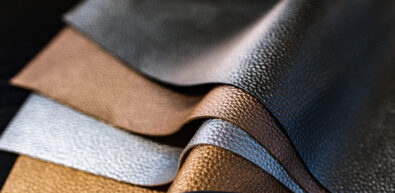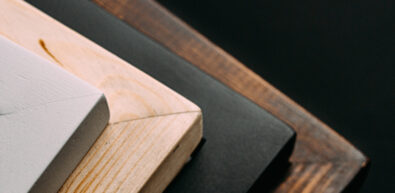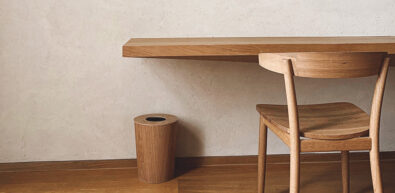Table of Contents
Taking good care of furniture can help extend its life and preserve its appearance. Nowadays, there are tons of furniture care products available. However, choosing the one that is most safe and most effective can be a daunting task. Orange oil is a popular natural product that many people use to maintain their furniture, but is it a good choice?
We can only know that after analyzing all the implications of orange oil on furniture.
What is orange oil?
Orange oil is a natural, essential oil that is made of orange peels. The oil is extracted from the peel during the production process, which is known as cold pressing. Orange oil has a sweet, citrusy scent and is used for cleaning and disinfecting.
Orange oil is frequently used for several purposes, such as aromatherapy, as a cleaning agent, and as a natural insect repellent. Orange oil is frequently employed as a natural polish and conditioner for wood furniture in the furniture industry. It is thought to draw out the wood’s inherent beauty while safeguarding it from harm from water, stains, and sunlight.
However, furniture enthusiasts are often found divided on the debate of using orange oil on furniture. While some of them believe orange oil is a safe and nature-friendly alternative to toxic chemical-based furniture care products, others say it might damage certain wood types.
Now which side stands correct, the pro orange oil team or the one against using orange oil? We’ll find out by the end.
Advantages of orange oil for furniture
Let’s dig into the advantages you can get by applying orange oil on furniture:
1. Natural and Eco-Friendly
Unlike many other furniture care products, orange oil is a natural, plant-based product that is biodegradable and environmentally friendly. This means that it won’t harm the environment or contribute to pollution like many chemical-based products do.
2. Moisturizes and conditions wood
Orange oil is an excellent moisturizer and conditioner for wood furniture. It can help prevent the wood from drying out and cracking, which can extend the life of your furniture.
3. Enhances natural beauty
Orange oil is often used to enhance the natural beauty of wood furniture. It can bring out the richness of wood grain and give it a warm, natural glow.
4. Removes dirt and grime
Orange oil has powerful cleaning properties that can help remove dirt and grime from wood furniture. This can be particularly helpful for antique or vintage furniture that has built up dirt and grime over time.
5. A pleasant scent
Your furniture will smell clean and fresh after using orange oil because of its pleasant citrus aroma. It’s a cool way to give your house a light fragrance without using air fresheners with chemicals.
6. Easy to use
Applying orange oil to your furniture is straightforward. You can simply apply it with a soft cloth and rub it into the wood. Plus, it doesn’t leave any residue or require any special equipment.
Disadvantages of orange oil for furniture
Here are the reasons why some experts think orange oil should not be used on furniture items:
1. Can be extra orangey
Let’s face it, orange oil smells like oranges. And while that can be a pleasant scent, it may not be everyone’s cup of tea. If you despise citrusy scents, orange oil may not be the best option for you.
2. Can attract dust
While orange oil can help remove dirt and grime from furniture, it can also attract dust. This means that if you apply orange oil to your furniture, you may need to dust it more frequently than you would if you were using a different product.
3. May not be suitable for all types of wood
While orange oil is generally safe for use on most types of wood, it may not be suitable for all types. Some experts recommend against using orange oil on certain types of wood, such as teak or rosewood, as it can cause discoloration or damage.
4. Can be costly
Orange oil can be expensive when compared to other furniture care products. If money is tight, you might want to give another product a shot.
5. Requires regular application
If you want to maintain the benefits of orange oil on your furniture, you’ll need to apply it regularly. This means that you may need to spend more time and effort on furniture care than you would if you were using a different product.
How to apply orange oil on furniture?
Here’s a how-to guide for applying orange oil to furniture:
1. Clean the surface
Before applying orange oil, make sure that the surface of your furniture is clean and free from dust, dirt, or debris. Start wiping the surface of the furniture using a microfiber cloth or a mild cleaning agent.
2. Get the orange oil ready
Shake the orange oil bottle to mix the contents. A small amount of orange oil should be poured onto a clean, soft cloth. You can also apply the oil with a spray bottle, but make sure to spray it onto a cloth rather than directly onto the furniture.
3. Apply the orange oil
Rub the orange oil onto the surface of the furniture using a circular motion. Apply only a light & even layer of oil; do not use excessive amounts. If you notice excess oil pooling on the surface of the furniture, wipe it off with a clean cloth.
4. Let the oil absorb.
After applying the orange oil, give it some time to absorb into the wood. This will enable the oil to treat and moisturize the wood beneath the surface.
5. Polish the surface.
Once you feel like the orange oil has soaked well inside the furniture, use a microfiber cloth to polish its surface. This will help finish any residue of oil and give the wood a lovely, realistic gloss.
6. Repeat as needed
Depending on the condition of your furniture, you may need to apply orange oil regularly to maintain its beauty and protect it from damage. Check the manufacturer’s instructions for recommended usage and frequency of application.
Orange oil & furniture FAQs
You surely have some questions popping up in mind right now. Here are the answers:
Is orange oil good for wood cabinets?
Yes, orange oil is an excellent choice for wood cabinets because it cleans, moisturizes, and protects the wood while imparting a natural shine. It is best for cabinets with a matte or low-gloss finish, as it may cause streaking or discoloration on high-gloss finishes.
Does orange oil prevent mold in furniture?
No, orange oil has some antimicrobial properties, but it is not a reliable method for preventing mold growth on wood surfaces. It is best to use a proper cleaning solution or seek professional help to prevent mold.
Is orange oil safe for wood floors?
Yes, orange oil is safe for use on wood floors. It can help remove dirt and grime and leave a natural shine. However, make sure to follow the instructions of the floor-maker and use it in moderation to avoid buildup.
Can you varnish over orange oil?
No, it is not recommended to varnish over orange oil as it may cause adhesion issues. Wait at least 24 hours after applying orange oil before applying varnish. If you are confused then try talking to a professional before applying any coating on orange oil.
Does orange oil help remove termites from furniture?
No, orange oil is not an effective treatment for termite infestations in furniture. Professional pest control services are necessary for termite control.
What is the best orange oil for wood furniture?
The best orange oil for wood depends on your specific needs and preferences. Look for products that are pure, natural, and have positive customer reviews. Before using any product, it’s important to check for allergies or sensitivities.
Can orange oil be used on unfinished wood?
Absolutely, you can use orange oil to nourish and preserve unfinished wood. It may also enhance the wood’s original attractiveness. Before using it across the entire surface, it is crucial to test it on a tiny, isolated region.
Is orange oil toxic?
Orange oil is generally considered safe for use on furniture, as it is non-toxic and biodegradable. To prevent any damaging consequences, it is crucial to use it minimally and per the manufacturer’s instructions. While orange oil is safe for humans and pets, it can be irritating if ingested or if it comes into contact with the eyes. Avoid using orange oil in places with poor ventilation and keep it out of the reach of kids and pets.
Is orange oil good for antique wood furniture?
Orange oil can be a good option for antique wood furniture, as it can clean, moisturize, and protect the wood without causing any damage.
However, first, you should use orange oil in moderation and test it on a small, inconspicuous area to avoid any adverse effects.
Which is best for wood; orange oil or lemon oil?
While both lemon oil and orange oil are useful for preserving and maintaining wood furniture, each has distinct qualities.
Orange oil has a stronger aroma and is better for darker woods, whereas lemon oil has a more subdued scent and is ideal for light-colored woods.
The decision between lemon oil and orange oil ultimately comes down to the kind of wood being treated.
Conclusion
In conclusion, orange oil is a natural and effective option for maintaining and preserving furniture. It can clean, moisturize, and protect wood without causing any damage and it is non-toxic and biodegradable.
However, it is important to use it in moderation and test it on a small, inconspicuous area first. Overall, orange oil is a great choice for those looking to take good care of their furniture.





